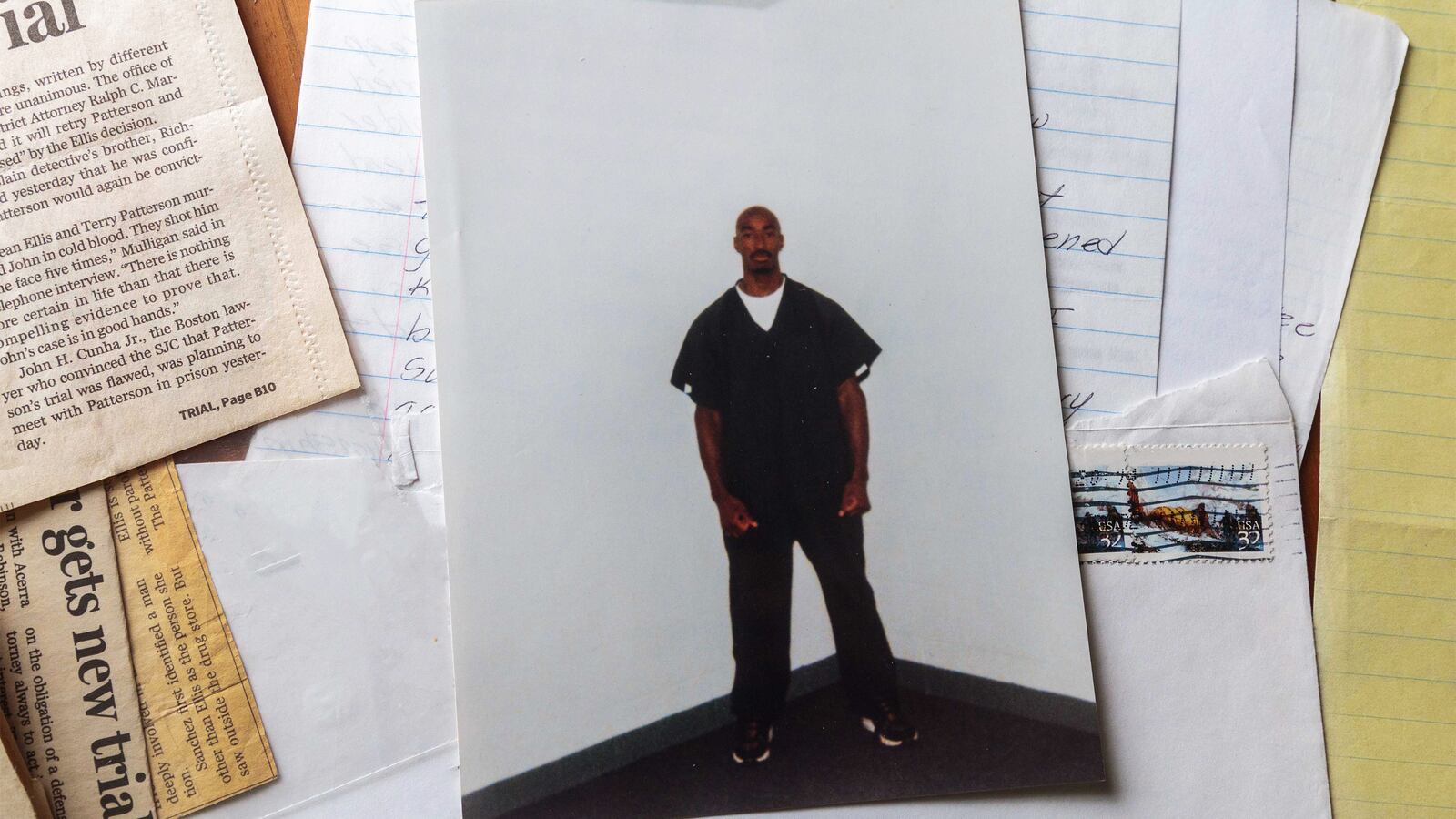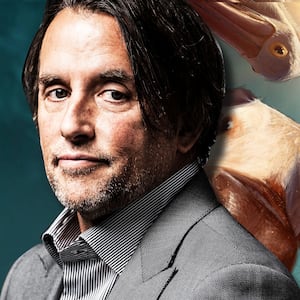Given that its stories often involve mysteries that are unsolved or were improperly investigated and prosecuted, the true-crime genre routinely paints unflattering pictures of law enforcement and the criminal justice system. That’s absolutely the case with Trial 4, an eight-part Netflix docuseries (premiering Nov. 11) about Sean K. Ellis, who in 1993 was arrested at the age of 19 for the murder of Boston Police detective John Mulligan. Ellis was tried for that slaying three times in 1995, and following the first two mistrials, he was convicted and sentenced to life in prison. The problem being, as argued by Remy Burkel’s non-fiction effort (executive produced by The Staircase’s Jean-Xavier de Lestrade), he was an innocent man—and the victim of some very bad individuals.
In the early morning hours of Sept. 26, 1993, detective Mulligan was shot five times in the face (including once directly up the nose) while sleeping in his SUV on a security detail in a Walgreens parking lot. Everyone agreed, at first glance, that it was an execution-style hit. However, despite following a few early leads, the focus quickly shifted to Ellis, courtesy of his admission – while talking to cops about the double-murder of his cousins, which had just occurred—that he had been buying diapers at the Walgreens in question around the time of the murder. Though Ellis was engaged in low-level drug dealing, he and the friend who drove him to the pharmacy, Terry Patterson, had no motive for killing Mulligan. Nonetheless, the Boston Police Department soon came to the conclusion that Ellis and Patterson (who were Black) had assassinated the cop (who was white) because they wanted his gun as a trophy.
That both the murder weapon and Mulligan’s firearm were later found in a lot near Sean’s home only reinforced this theory, as did later testimony against him by his girlfriend and uncle. Nonetheless, something reeked so badly about this flimsy case that the first two juries that heard it came away deadlocked. Only on the third try did the district attorney’s office get what they sought, thereby triumphing in a cop-killing saga they were determined to resolve.
As its title implies, Trial 4 concerns Ellis’ arduous battle to secure a new day in court, and it benefits immensely from both a wealth of archival news and police footage from the ‘90s—including forensic videos of cops going over Mulligan’s car with a fine-toothed comb—and new interviews with an Ellis seen in various locales outside prison. It’s not until late in the proceedings that one learns he’s been released on bail to await a new trial, and by depicting him at home, in his neighborhood, and collaborating with his lawyers, the series neuters a certain amount of its suspense. Nonetheless, that’s a minor quibble given that Ellis’ participation is vital, providing a window into not only his version of events on that fateful 1993 night, but into his experiences trying to clear his name for a crime he’s adamant he didn’t commit.
Trial 4 traces Ellis’ journey in exhaustive and meticulous detail, employing constant text cards to lay out the timeline of events surrounding Mulligan’s murder, and thoroughly examining the ways in which cops tried to pin the crime on him. Thanks in large part to the tireless work of Ellis’ new lawyer Rosemary Scapicchio, what it uncovers is a web of corruption in the Boston Police Department. As it turns out, three cops working the case—Kenneth Acerra, Walter Robinson, and John Brazil—were all as dirty as the inside of a Porta Potti, infamous throughout the area (and department) for paying witnesses, coercing folks to testify, and robbing drug dealers of their cash and stashes. That the trio took the lead in the Mulligan investigation—this despite the fact that Acerra and Robinson were drug cops, not homicide detectives—immediately called it into question.
The subsequent revelation that Mulligan himself may have been the fourth member of their illicit cop cabal was—after Ellis had spent more than two decades behind bars—enough to earn him a new trial. Trial 4 thus transforms into a familiar infuriating tale about police officers breaking the law for their own purposes, closing ranks and protecting their own no matter what, and then conspiring with prosecutors to pursue bogus cases—and, when those come up for appeal, to double-down and stick to their guns rather than admit fault and do right by innocent men and women. The bigger picture of systemic injustice is plain for all to see.
Unfortunately, it’s also hard to ignore that Trial 4 is bloated beyond any reasonable measure. Animated recreations of the multiple possible versions of Mulligan’s murder are sharp and effective, and both the candid Ellis and crusading Scapicchio—the type of firebrand any defendant would want in their corner—are engaging protagonists who address the various personal, racial, and sociocultural elements at play in this drama. But director Burkel spends an inordinate amount of time on extraneous passages that afford little vital insight, and sabotage a good bit of momentum. Nowhere is that more powerfully felt than in a late, extended detour into the campaign for Boston’s new district attorney—an election that has relevance for Ellis’ case, but could have been sufficiently summarized in five minutes. Similarly, a look at Ellis’ childhood experiences being bused to a white school, where he befriended a boy whose mother would later fight for his freedom, both speaks to the larger racial-division issues underscoring his plight, and proves excessively distended.
At a breakneck five or six installments, Trial 4 would have resounded with outrage-inducing force about the need for greater law enforcement transparency and oversight, and about the dangers posed by overly powerful police unions and district attorney offices that act as if they’re only accountable to themselves. Yet running approximately seven hours, it sometimes neuters its dynamism through unnecessary diversions. That makes it not unlike many other Netflix (and true-crime) ventures that prize everything-and-the-kitchen-sink overload over lean argumentative efficiency. Although no amount of dawdling, ultimately, can overshadow the galling fate that befell Ellis, and the tenacity and resiliency he exhibited in the face of daunting odds and disreputable adversaries—a courage which demonstrates that even when confronted with wrongdoing, the truth, however qualified and compromised, can come to light.


